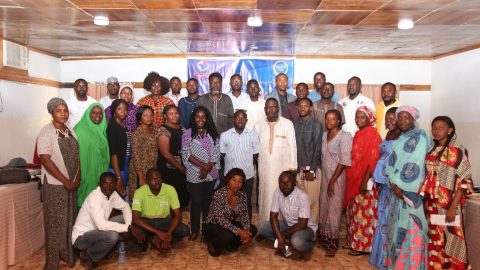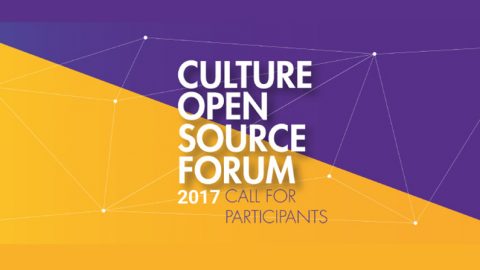A short while ago I wrote about the Nigerian government’s tendency to play God by forgiving sins. But I have since realized that playing God is something governments (I mean globally) do very much and very well. There is this itch on the part of governments to name what is sin (or illegal if you prefer – but I will stick with “sin” analysis). It is really simple: find something that is not yet criminalized, declare it sinful and then a new sin is created. But it doesn’t stop with speaking sins into existence – it goes on with a tedious patrol to prevent sin; the search for sinners; the punishment of sin and then the highpoint of it all: the forgiveness of sins. It must feel divine to head a government.
But you would quickly see that the modern society as we know it is built upon this sin prevention system which we could call ‘The Sin Patrol’. If you removed the ability of the state to define, prevent and punish sins thereby ensuring justice; then society collapses into the State of Nature where life was nasty, brutish and indeed very short. So then, there is no escaping the crusade against sin and the punishment of confirmed sins – this is the burden of the modern State, including Nigeria. Actually, in Nigeria The Sin Patrol is not always as effective as it can be, which then results in impunity.
There is the extreme of the crusade against sin. It is in the tendency of governments to “produce” the kind of citizens they want through laws, policies, suggestions and crude force – in its extremes you have robotic “yessir” kinds of citizens. This production is done through controling what citizens read, watch, think, say, eat, drink, inhale and the whole gamut that you could call “life”. More importantly, where, when, how and with whom this life is lived is also controlled. I could tell you that this practice is called “governmentality” – but there is the risk that I may lose you if we venture into the Foucauldian realms.
Often the line separating what is legal and what is prohibited is clear; but you struggle to find its logic. Consider for example that an adult engaged in sexual relations with a 17 year old child is charged for pedophilia and child abuse. But suddenly a Senator of Nigeria is said to be in a “love escapade” with an 18 year old girl who is about to finish secondary school. Where is the difference between a 17 and an 18 year old?
On 29th November 2012, a new 28:33 minutes documentary called “Fuelling Poverty” premiered at the Silverbird Cinema in Abuja. On 2nd December 2012, it went on Youtube where it has since been viewed over 47,000 times. The documentary described itself on Youtube as a “Documentary Featurette about the culture of greed and corruption in Nigeria articulated through the Fuel Subsidy Scam of 2011. A film by Ishaya Bako supported by the Open Society Initiative for West Africa (OSIWA)”. Having watched this documentary many times, I agree that the story of Occupy Nigeria needed to be told and summarized for the sake of posterity and for the benefit of many others who would stumble across the term “Occupy Nigeria” somewhere and begin to ask questions.
Although much of the information that went into the documentary is widely available in other forms and on the internet; ‘Fuelling Poverty’ is a good summary that one could easily point out both to the next generation and in response to the many questions one is asked about Nigeria abroad. You see it has proven impossible to explain the term “subsidy” to non-Nigerians without the aid of slides, graphs and calculators. These days, one scribbles “Fuelling Poverty” and directs the inquirer to Youtube – it is a handy tool for every practicing Nigerian. ‘Fuelling Poverty’ will not answer all the questions about the oil industry in Nigeria – but it lays out the context and gives anyone interested the leads to follow up.
So could a story that is lived by all Nigerian – home and abroad as well as told by ‘Fuelling Poverty’ as well as billions of social media comments, news stories, music, creative arts as well as academic research ever again be unlived or be un-told? In other words, could I un-ask you this question after I have already ask you? Impossible if you asked me; but possible if you ask the Nigeria Film and Video Censor Board (NFVCB). The NFVCB has banned the airing and distribution of the documentary which it considers “highly provocative and likely to incite or encourage public disorder and undermine national security”. This is how sin is created: Day 1 ‘Fuelling Poverty’ is legal; Day 2 government intervenes and Day 3; the documentary becomes a sin.
What the NFVCB is not telling us (yet) is whether they took this decision based on recommendations from the Nigerian security forces. I mean, film critics would not usually be the best assessors of what could encourage public disorder and undermine national security – or are they? Anyhow, ‘Fuelling Poverty’ had premiered in Abuja last November and then it went up on Youtube in December. Suddenly it was judged to undermine national security in April 2013. Questions: how much havoc has the documentary done to public order and national security between November 2012 and April 2013? I shudder to think that something that undermines national security has been on ‘rampage’ for 5 months! Could the “Fuelling Poverty” epidemic be contained now that it is on Youtube and judged the best documentary on the continent for 2013?
What is the effect of this making ‘Fuelling Poverty’ a sin? Nigerian media houses are henceforth banned from distributing the film; but I don’t know if many TV stations still had the plans to stream the film 5 months after it went up on Youtube. According to the Committee to Protect Journalists (CPJ); neither the NFVCB’s acting director-general, Patricia Bala nor Tanko Yunusa Abdullahi its spokesman responded to their inquiries on how the board made its determination. They should educate Nigerians on what makes some films dangerous so that acceptable films would be made in future.
According to Premium Times, the sudden rise in hits on the documentary on Youtube is clearly traceable to the NFVCB’s ban. I completely agree – since the ban was announced I have watched it 2 more times and the last time I was the 47,145th viewer. The surge in hits is great, but frankly I think it is not enough given the population of Nigeria; but that probably says something about internet access and use as well as interests. Apart from the hits though, on March 15, 2013, ‘Fuelling Poverty’ was shortlisted for the 2013 African Movie Academy Award, AMAA. It competed for the ‘AMAA 2013 Prize for Best Documentary’ category with 4 other documentaries – 2 from Kenya and 2 from South Africa.
The ban imposed on ‘Fuelling Poverty’ comes a few days before the AMAA Awards Ceremony was held on Saturday 20th April in Yenegoa, Bayelsa State. Not that it affects anything, but I should tell you that Bayelsa is President Goodluck Jonathan’s home state and where he was Governor. So here is the situation – thousands of people who know about films gathered in the President’s hometown and watch the possibility that the film about “the culture of greed and corruption in Nigeria” would emerge as the best documentary to be seen in 2013.
Guests, nominees and everyone participating in the AMAA Award Ceremony arrived Bayelsa unsure of the fate of “Fuelling Poverty” – it is like arriving a stadium not knowing whether all the players would be allowed to play and perhaps wondering whether the judges might have received calls from “above”. What do you do if you are confronted with such a scenario at a sporting event? Boycotting is a good possibility. But now, I hope that guests to the award ceremony would spend the rest of their time in Nigeria contrasting the Nigeria described in the documentary with the Nigeria they are looking at and be able to make their own determination.
At the end of the AMAA Award Ceremony, ‘Fuelling Poverty’ was awarded the Prize for the Best Documentary for 2013. In spite of the NFVCB ban, the “experts” have ruled that it is the best documentary for the year 2013. I urge the NFVCB to now rescind the ban; the government should not fight the documentary about corruption instead, it should direct its fight to corruption itself. After all, if ‘Fuelling Poverty’ was lethal, I would not be here writing this article. Secondly, the documentary has had a long time to spread its message and sow it seeds in many hearts – it could not now be contained. As the best documentary from Africa in 2013, it will be shown and celebrated across the world and soon millions would have watched. It will be sad if the documentary is watched in other parts of the world as a celebration of Nigerian excellence when it is banned at home. Regardless of the ban, top government officials attending the award ceremony watched the awards being announced, I wonder if they all agreed with the ban though. As a result of the ban, Nigeria is now on record to have hosted an event where a film it banned received continental applause. If the documentary was streamed at the AMAA Awards then the government would be the first to have broken its own laws – at least the Minister of Culture and Tourism as well as the Governor of Bayelsa State were part of the ceremony.
I salute all Nigerians who took part in the Occupy Nigeria protest especially my friend Mbasekei Martin Obono and colleagues who were arrested during the protest. I pay tribute to family and friends of Ademola Aderinde and others who were killed during the protest. The award given to ‘Fuelling Poverty’ is not only a celebration of the producers’ skill but also a tribute to your courage, strength and sacrifice, obviously the judges have never seen a people as powerful as you were. As ‘Fuelling Poverty’ says: the power to change the status quo is in your hands. A big congratulation to Ishaya Bako and the project team of ‘Fuelling Poverty’; I sincerely hope that you will have no reason to make a second part of this tale. Instead I hope that this culture of greed and corruption would be broken and your next documentary will be about how Nigeria has changed for good.
________
Nengak Daniel Gondyi is presently a post-graduate student in International Migration and Ethnic Relations at Malmö Högskola in Sweden. He is also a Senior Programme Officer of the Abuja based Centre for Democracy and Development, CDD. He holds a Bachelors’ in International Studies from the Ahmadu Bello University. Read his full profile here.









